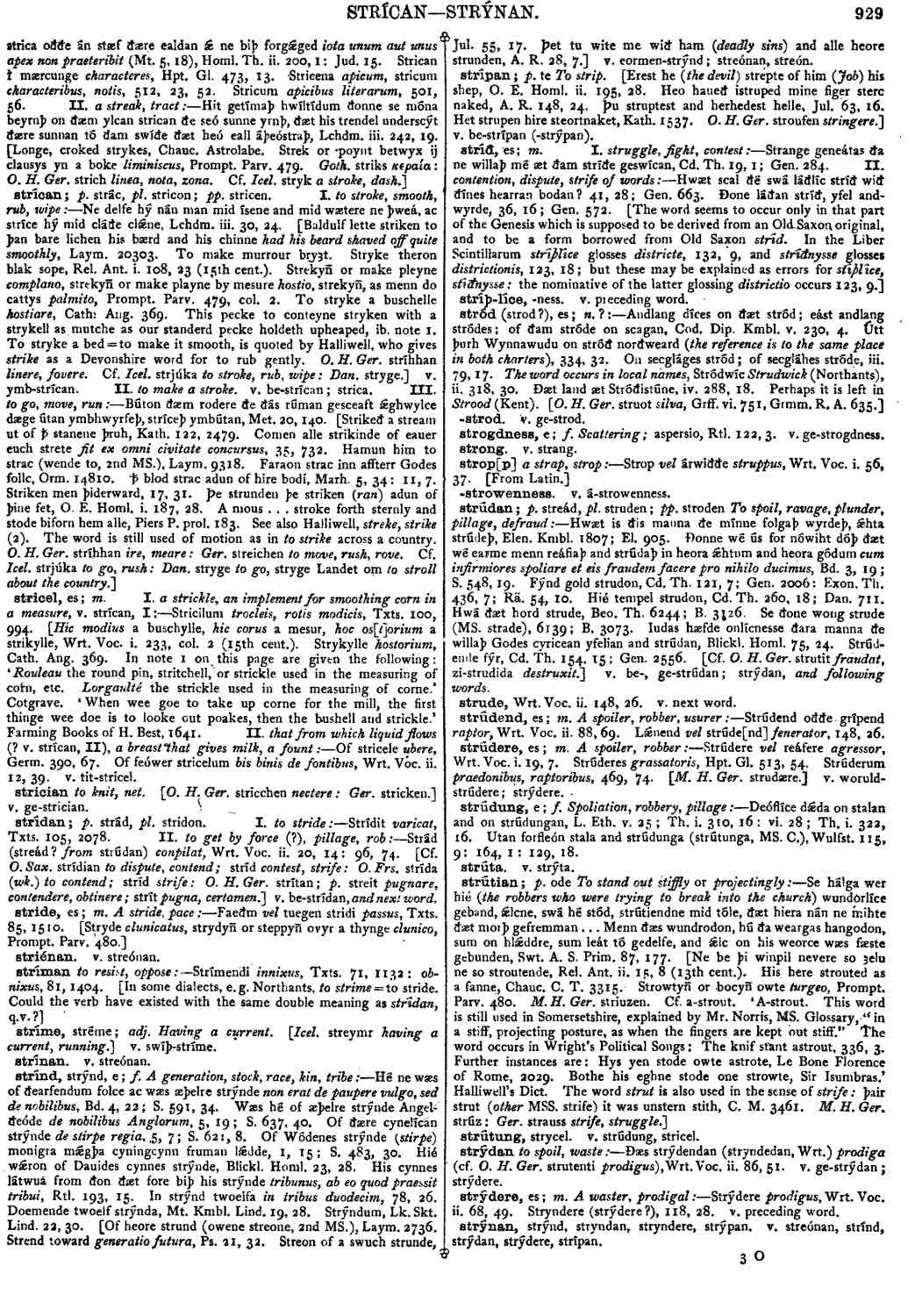strícan
- verb [ strong ]
-
Ne delfe hý nán man mid ísene and mid wætere ne þweá, ac stríce hý mid cláðe clǽne,
- Lchdm. iii. 30, 24.
-
Búlon ðæm rodere ðe ðás rúman gesceaft ǽghwylce dæge útan ymbhwyrfeþ, stríceþ ymbútan,
- Met. 20, 140.
Bosworth, Joseph. “strícan.” In An Anglo-Saxon Dictionary Online, edited by Thomas Northcote Toller, Christ Sean, and Ondřej Tichy. Prague: Faculty of Arts, Charles University, 2014. https://bosworthtoller.com/29176.
Checked: 0